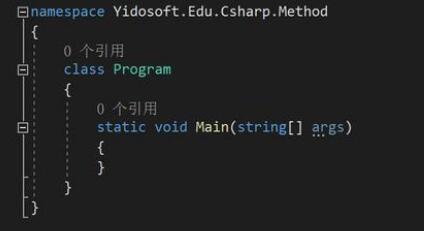前言:
stream api 和 lambda 是java8的重要特性让我们可以使用更具功能性的语法风格。但是在编写的代码时候一个更大的问题是如何处理lambda中的已检查异常。
但是不能直接调用从lambda抛出异常!但是可以在lambda中做一个简单的try-catch并将异常包装成一个runtimeexception。
|
1
2
3
4
5
6
7
8
9
10
11
12
13
14
15
16
17
18
19
20
21
22
|
/**###很显然这不是一种好的表现方式##**/
/**
* dosomething
* @param item
* @return
*/
private static object dosomething(string item) {
system.out.println("dosomething:\\t" + item);
return item;
}
public static void main(string[] args) {
list<string> mylist = arrays.aslist("1", "2", "3", "4", "5", "6");
mylist.stream().map(item -> {
try {
return dosomething(item);
} catch (exception e) {
throw new runtimeexception(e);
}
}).foreach(system.out::println);
}
|
换一种可读性比较好的方式呢?
|
1
2
3
4
5
6
7
8
9
10
11
12
13
14
15
16
17
18
|
/**将函数体提取到一个单独的方法中,并调用新方法做try-catch处理**/
private object dosomething(string item) {
system.out.println("dosomething:\\t" + item);
return item;
}
private object trysomething(string item) {
try {
return dosomething(item);
} catch (exception e) {
throw new runtimeexception(e);
}
}
public void map() {
list<string> mylist = arrays.aslist("1", "2", "3", "4", "5", "6");
mylist.stream().map(this::dosomething).foreach(system.out::println);
}
|
runtimeexception
在许多情况下对于一些运行时异常的捕捉都使用 runtimeexception 也可以在lambda内部调用。如果每个调用都进行运行时异常的捕获,重复代码就出现了。所以:将它抽象为实用函数,每次需要的时候调用它!
|
1
2
3
4
5
|
//定义一个检查接口
@functionalinterface
public interface checkedfunction<t,r> {
r apply(t t) throws exception;
}
|
您可以在此抽象接口中处理try-catch并将原始异常包装到 runtimeexception中。
|
1
2
3
4
5
6
7
8
9
|
public static <t,r> function<t,r> wrap(checkedfunction<t,r> checkedfunction) {
return t -> {
try {
return checkedfunction.apply(t);
} catch (exception e) {
throw new runtimeexception(e);
}
};
}
|
|
1
2
3
4
5
6
7
|
/**调用公共wrap 进行异常处理*/
public void map(){
list<string> mylist = arrays.aslist("1", "2", "3", "4", "5", "6");
mylist.stream()
.map(wrap(item -> dosomething(item)))
.foreach(system.out::println);
}
|
either
使用流时如果发生异常不希望停止处理流,either类型是函数式语言中的常见类型而不是java的一部分。与java中的optional类型类似,either是具有两种可能性的通用包装器。例如,如果我们有一个either值,那么这个值可以包含string类型或integer类型either<string,integer>。
|
1
2
3
4
5
6
7
8
9
10
11
12
13
14
15
16
17
18
19
20
21
22
23
24
25
26
27
28
29
30
31
32
33
34
35
36
37
38
39
40
41
42
43
44
|
public class either<l, r> {
private final l left;
private final r right;
private either(l left, r right) {
this.left = left;
this.right = right;
}
public static <l,r> either<l,r> left( l value) {
return new either(value, null);
}
public static <l,r> either<l,r> right( r value) {
return new either(null, value);
}
public optional<l> getleft() {
return optional.ofnullable(left);
}
public optional<r> getright() {
return optional.ofnullable(right);
}
public boolean isleft() {
return left != null;
}
public boolean isright() {
return right != null;
}
public <t> optional<t> mapleft(function<? super l, t> mapper) {
if (isleft()) {
return optional.of(mapper.apply(left));
}
return optional.empty();
}
public <t> optional<t> mapright(function<? super r, t> mapper) {
if (isright()) {
return optional.of(mapper.apply(right));
}
return optional.empty();
}
public string tostring() {
if (isleft()) {
return "left(" + left +")";
}
return "right(" + right +")";
}
}
|
让函数返回either 而不是抛出一个exception.
|
1
2
3
4
5
6
7
8
9
10
11
12
13
14
15
16
17
18
19
20
21
|
//只记录异常
public static <t,r> function<t, either> lift(checkedfunction<t,r> function) {
return t -> {
try {
return either.right(function.apply(t));
} catch (exception ex) {
return either.left(ex);
}
};
}
//记录异常和值
public static <t,r> function<t, either> liftwithvalue(checkedfunction<t,r> function) {
return t -> {
try {
return either.right(function.apply(t));
} catch (exception ex) {
return either.left(pair.of(ex,t));
}
};
}
|
|
1
2
3
4
5
6
7
|
/**调用either.lift 捕获异常继续执行*/
public void map(){
list<string> mylist = arrays.aslist("1", "2", "3", "4", "5", "6");
mylist.stream()
.map(either.lift(item -> dosomething(item)))
.foreach(system.out::println);
}
|
总结:
如果你想在lambda中调用它checkedexception,你可以将其包装成一个runtimeexception 。建议您创建一个抽象进行调用,这样您就不会每次try/catch。也可以使用 either 或其他类型来包装函数的结果,使流不会终止。
以上所述是小编给大家介绍的java streams 中的异常处理详解整合,希望对大家有所帮助,如果大家有任何疑问请给我留言,小编会及时回复大家的。在此也非常感谢大家对快网idc网站的支持!
原文链接:https://blog.csdn.net/u011663149/article/details/88661591
相关文章
- ASP.NET自助建站系统中如何实现多语言支持? 2025-06-10
- 64M VPS建站:如何选择最适合的网站建设平台? 2025-06-10
- ASP.NET本地开发时常见的配置错误及解决方法? 2025-06-10
- ASP.NET自助建站系统的数据库备份与恢复操作指南 2025-06-10
- 个人网站服务器域名解析设置指南:从购买到绑定全流程 2025-06-10
- 2025-07-10 怎样使用阿里云的安全工具进行服务器漏洞扫描和修复?
- 2025-07-10 怎样使用命令行工具优化Linux云服务器的Ping性能?
- 2025-07-10 怎样使用Xshell连接华为云服务器,实现高效远程管理?
- 2025-07-10 怎样利用云服务器D盘搭建稳定、高效的网站托管环境?
- 2025-07-10 怎样使用阿里云的安全组功能来增强服务器防火墙的安全性?
快网idc优惠网
QQ交流群
-
2025-05-29 102
-
2025-05-29 87
-
2025-06-05 95
-
2025-05-29 24
-
2025-05-27 74










